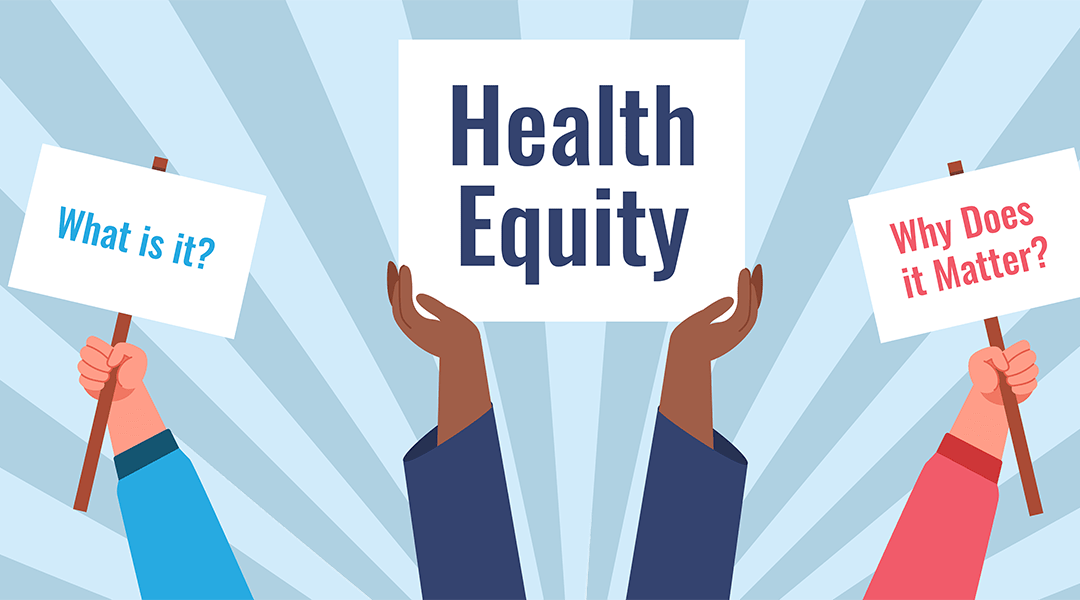Recently we’ve been hearing a lot about social equity, particularly around the disastrous effects of the War On Drugs on people and communities of color. Without question the use of recreational substances has been weaponized against minorities in the US, and elsewhere, for over 50 years and it’s time for a change.
In the cannabis and cannabinoid medicine sphere, there is another group that is overlooked, under-served, and needs a better voice: patients. I would argue that regardless of other identifiers, all cannabis patients are being short-changed in matters of Health Equity.
To see the pernicious effects of this inequity you need look no further than the social justice oriented bills languishing presently in the House and Senate, including the Democrats’ MORE Act and Cannabis Administration and Opportunity Act (CAOA). Both of these bills attempt, to some degree, to address the social justice issues regarding race while establishing a legal national industry to sell cannabis. Neither even mention patient care!
Patients, or potential patients, comprise the vast majority of Americans and, since this includes all minority groups, vastly outnumber both minorities in general and also recreational cannabis users. Currently, approximately 150 million Americans might benefit from treatment with cannabinoid medications, and this number is only rising as the population ages. Compare that to roughly 20-30 million American recreational cannabis users. Yet, in this giddy rush to legalize cannabis sales there are no provisions for patient care.
We must understand that healthcare is an equity issue. Disparities in health outcomes span race, age, and economic status. The whole system needs an overhaul to fix these issues, but we’ve been working on this since at least 1960 – and that’s a lot of really smart people working on a complex problem without solving it. Here we have a new system that could be instituted with care and forethought to provide, at least within its own little niche, proper care for all.
Despite the nascent cannabis industry’s deepest wishes, cannabis is not a good Do-It-Yourself medication. Many ill-advised companies would like to treat patients as self-medicating recreational users. Statements like “nobody has ever died from cannabis,” “cannabis is safe,” and “it’s a vitamin” underscore, not only the greed of these companies, but the fundamental misunderstanding of the real risks involved and the right of patients to be properly informed and guided. Most Americans, contrary to popular belief, do not self-medicate or otherwise dabble with their health.
Presently, neither the industry nor the voices in Congress seem to understand the true complexities of medicine nor the fundamental need of patients for expert guidance and care.
In order for us to provide cannabinoid-related healthcare to mainstream Americans, we must mainstream the approach to cannabis-care. We must view healthcare, and cannabinoid medicine as an issue of Health Equity. We must prioritize care for the sick over profits and special interests.
To do this, we must improve upon bills like the MORE Act and the CAOA that pay no heed to the sickest Americans and only really support the development of a new industry. We must demand real change that focuses on providing real care to all. We must mainstream the approach to treatment.
We must provide physicians the means to give this care. This requires a system that is more precise and specific than “just ask the dude behind the counter” (who, after all, knows no medicine). We must acknowledge that not all products are safe or effective, that not all doses and delivery methods are good for people, and that an actual prescription is the only way to assure that patients get what they need and nothing else. Further, industry players must be made to conform, not only to national safety standards, but to providing solely what is ordered by the clinician. We must acknowledge that patients travel and must protect them as they do so. We must budget much more money for medical research to answer the many lingering questions about both safety and effectiveness of cannabinoids. We must address the cost of these treatments so that they are available to all. We must do all of this while not undermining the availability of our current cannabis medications so that no one is left without treatment.
Cannabis treatment is a Health Equity issue that is far broader than the social equity issues currently being contemplated nationally. It affects the daily lives of a broad swath of Americans across many demographics. We must not ignore their needs and rights amidst the current euphoria over legalizing weed.
If you’re interested in fighting for the rights of cannabis patients, please support the Association of Cannabinoid Specialists. You can read more about their platform.
Consult with a Qualified Boston Medical Marijuana Expert Today
Those considering using THC, CBD, or any type of medicine found in cannabis to help manage their condition should consider speaking to a trained medical expert who is knowledgeable about using cannabis therapeutically. Massachusetts medical marijuana doctor Jordan Tishler, M.D. sits on the faculty of Harvard Medical School and has years of experience helping patients treat pain and other ailments using cannabis. He and the team at InhaleMD stand ready to assist patients in determining whether medical marijuana is right for them. For more information, or to set up a virtual consultation with the team at InhaleMD, call us at (617) 477-8886 today.

